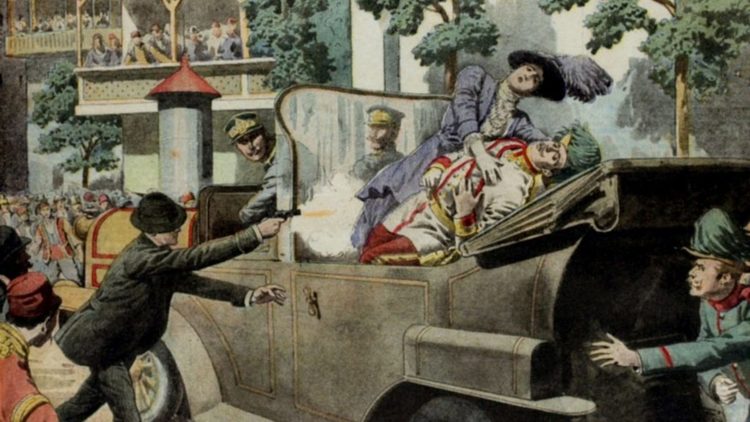


By Steve Sailer
06/13/2021
From Security Studies:
Why 1914 but Not Before? A Comparative Study of the July Crisis and Its Precursors
Jack S. Levy & William Mulligan
Published online: 03 Jun 2021Abstract
Why did the July 1914 crisis — but not crises in 1905, 1908–9, 1911, and 1912–13 — escalate to great-power war despite occurring under similar international and domestic conditions? Explanations based on underlying and slowly changing structural, social, or cultural variables cannot answer this question. Examining three Balkan crises of 1912–13 and the July Crisis, we refine realist explanations based on power, alliances, and reputational interests by incorporating the impact of changing power distributions and alliances in the Balkans on the great-power security system. A more complete answer to the why-1914-but-not-before question, however, requires the incorporation of Franz Ferdinand’s assassination, which went beyond a pretext for war. It eliminated the most powerful and effective proponent for peace in Vienna and fundamentally changed the nature of the decision-making process in Austria-Hungary. Counterfactually, we argue that a hypothetical crisis with Franz Ferdinand present would probably have ended differently.
The three most famous assassinations of major political leaders before JFK — Julius Caesar, Abraham Lincoln, and Archduke Franz Ferdinand — were the result of fairly high level conspiracies. Caesar was stabbed by many leading Roman senators, John Wilkes Booth’s recruitment involved numerous young men of fashion and involvement may have gone quite high in the Confederate government, and Serbian military intelligence dispatched the assassins to Sarajevo to murder the Archduke.
The egregiousness of this action by Serb insiders meant that Austro-Hungary couldn’t let it slide, but Russia couldn’t afford to let Austro-Hungary crush Serbia, and Germany felt like if Russia was going to attack Austro-Hungary, they might as well get their eventual confrontation with Russia over and done with now before Russia had fully industrialized, which meant taking Paris first via Belgium, which meant, to Germany’s surprise, Britain’s entry, which ultimately meant the United States’ entry.
Unfortunately, the man who had had the best chance of stopping this slide to catastrophe, Franz Ferdinand, was dead. He was a conservative dynastic centralist who felt that Austro-Hungary’s accommodation of Hungarian aspirations in 1867 was a mistake. His anti-Hungarianism made him sympathetic to the Slavs, and he intended when he came to the throne to conciliate the Slavs. It’s often said that he would have converted the Austro-Hungarian Empire into the Austro-Hungarian-Slavic empire, but perhaps he would have instead made Vienna predominant and given all the nationalities equal local autonomy in a supranational federalism. He’d spoken out against Austro-Hungary going to war against Serbia because he feared that would lead giant Russia to fight his empire.
Somewhat like Kaiser Wilhelm, Franz Ferdinand had a difficult personality, so it’s not inevitable that if he’d succeeded his grandfather Franz Joseph as emperor in 1916 that he could have pulled off his plan for the survival of his empire (in particular, demoting Hungary to equal status with the Slavs sounds like a real challenge). But it also sounds like he was the guy who had the most reasonable plan for maintaining the balance of power in Europe by keeping his empire together. And that’s one reason that the Serb conspirators chose him as their victim.